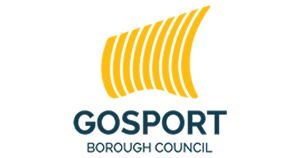General Recycling Information
Facts and Figures:
2023/2024 - 27% a total of 6695 tonnes household waste recycled, reused or composted
2022/2023 - 26.5% a total of 6582 tonnes household waste recycled, reused or composted
2021/2022 - 27.5% a total of 7236 tonnes household waste recycled, reused or composted
Following the introduction of an alternate weekly kerbside collection of dry mixed recyclable materials the recycling rate has dramatically improved. This is a direct result of efforts from residents throughout the Borough.
Please continue to recycle everything you can (paper, card, plastic bottles and cans - now including aerosols) in your green recycling wheelie bin so we can improve our recycling performance.
It is important to only include the items we can recycle in your green wheelie bin (paper, card, plastic bottles and cans), and nothing else. Other materials are classed as 'contamination' - they cause problems at the sorting factory, and when they mix with the correct recycling it can mean that this cannot be recycled. This will then all have to go for disposal at the Energy Recovery Facility (ERF - see below) anyway, costing much more than if it was sent there in the first place.
What happens to the recycling?
The recycling collected through the kerbside scheme (from your wheelie bin) is taken to the Materials Recovery Facility (MRF) in Portsmouth for sorting. The material is fed onto a conveyor belt, and a mixture of automatic and manual sorting is used to separate the materials.
For more information on how to dispose of waste & recycling visit the Waste and Recycling Hampshire website: here.
Paper - newspapers, pamphlets and magazines are delivered to paper mills where they are de-inked and pulped, and made into rolls of high quality newsprint. This is delivered to newspapers for printing.
Card and Cardboard- delivered to paper mills where it is pulped and filtered ready to be made into new cardboard.
Plastic bottles- separated at the MRF and baled for transport to a secondary processor. These companies make a number of different products from the bottles, including fleece clothing and drainage pipes.
Cans and Aerosols - baled at the MRF and sent on to a secondary processor for recycling. All food and drinks cans can be recycled. There are significant benefits in recycling steel and aluminium cans as it saves natural resources such as iron ore. They can be made into a number of products, including new cans, car parts and paper clips.
What happens to the non-recycling?
The majority of the items that cannot be recycled are now sent to the Energy Recovery Facility (ERF) in Portsmouth, where they are incinerated cleanly, whilst generating electricity for the National Grid.
Useful Links:
- Project Integra is the Hampshire waste partnership of all the districts and Boroughs, the two unitary authorities Portsmouth and Southampton, as well as the waste contractor Veolia Environmental Services.
- Project Integra agendas, minutes and reports.
- Recycle for Hampshire
- Pro-Grow is the soil conditioner made from Hampshire's garden waste.




